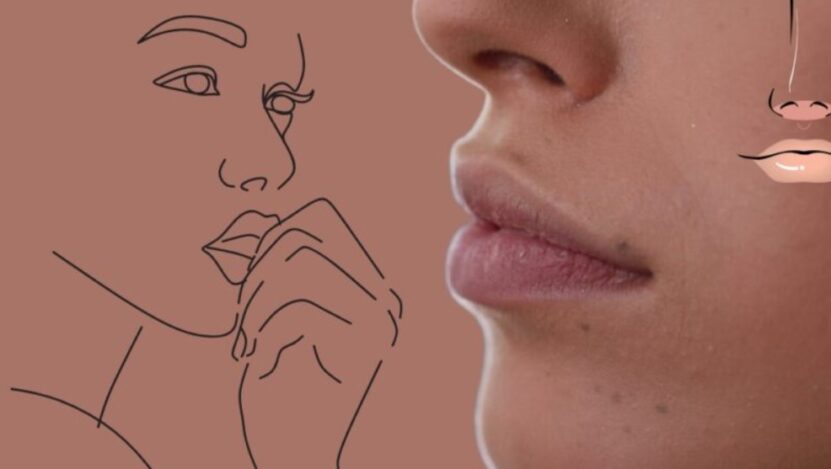Lip pimples can be bothersome. They appear at the most inconvenient times, and can be swollen, big, painful, upper, inside, or around your lips. This article aims to provide you with a comprehensive guide on how to combat this common skin concern. Let’s dive in!
Lip Pimples Explained
Just like pimples on other parts of your face or body, lip pimples occur when the oil glands in your skin become blocked. Excess oil, dead skin cells, and bacteria can get trapped in the pores, causing swelling and redness – and that’s how a pimple forms!
It’s worth noting that there are different types of bumps that can form around your lips. They could be true pimples, cold sores, or other types of bumps like Fordyce spots or milia. To treat the problem effectively, it’s crucial to know what you’re dealing with.
Differentiating Between Lip Pimples and Cold Sores
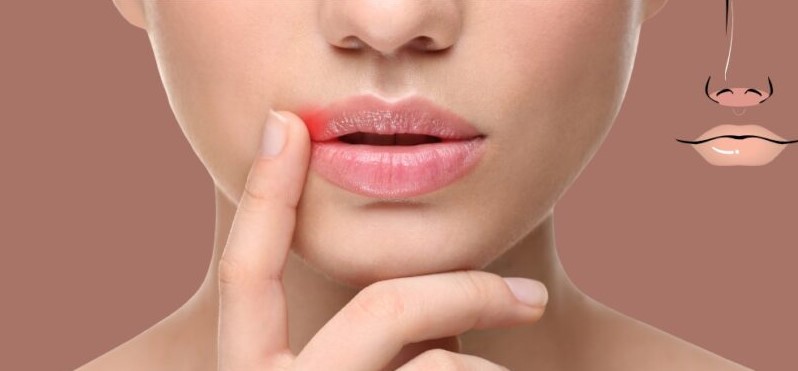
Cold sores are caused by the herpes simplex virus. They usually appear as fluid-filled blisters around the lips or even inside the mouth. On the other hand, pimples can form anywhere you have pores, including around the lip area, but not on the lips themselves. Pimples also don’t cause the tingling or itching that cold sores do.
Why Do We Get Lip Pimples?
The exact causes vary, but lip pimples often occur due to hormonal changes, stress, smoking, poor diet, or inadequate lip and face hygiene. Lip products, including balms and lipsticks, can also cause pimples if they contain ingredients that irritate your skin or clog your pores.
How To Treat This Condition
1. Proper Skin Hygiene
One of the most effective ways to prevent and treat lip pimples is to maintain good skin hygiene. This includes:
- Regularly washing your face: Use a gentle cleanser to remove excess oil, dead skin cells, and bacteria.
- Exfoliating: This helps to keep the pores free from blockages. However, be careful not to over-exfoliate, as this can irritate the skin.
- Removing makeup before bed: Always remember to remove all traces of makeup before going to sleep.
2. Topical Treatments
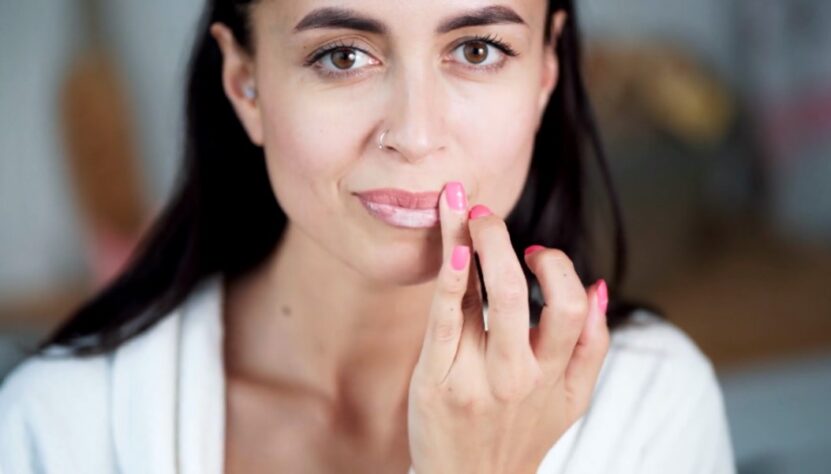
There are various over-the-counter treatments available for lip pimples, including:
- Salicylic Acid: This helps to unclog the pores and reduces inflammation.
- Benzoyl Peroxide: This kills bacteria and helps to peel away dead skin cells.
- Tea Tree Oil: Known for its antibacterial properties, it can help to treat mild acne.
However, as the skin on the lips is delicate, it’s important to use these treatments with caution. Apply a small amount and if any signs of irritation occur, stop using the product.
3. Lifestyle Changes
Certain lifestyle changes can help prevent and reduce lip pimples:
- Balanced diet: A diet rich in fruits, vegetables, lean protein, and whole grains can help maintain healthy skin.
- Stay hydrated: Drinking plenty of water can help to flush toxins out of the body, promoting healthier skin.
- Stress management: High levels of stress can trigger breakouts, so finding ways to manage stress, such as through exercise or meditation, can help.
4. Medical Treatments
If your lip pimples are persistent or severe, it’s worth seeking medical advice. Dermatologists can prescribe treatments such as retinoids, antibiotics, or even hormonal treatments like birth control pills, depending on the underlying cause of the acne.
Dealing with Specific Types of Lip Pimples
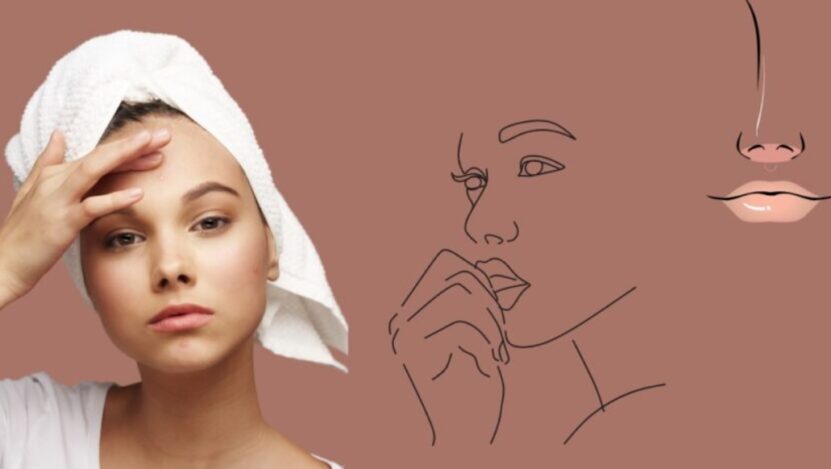
Now that we have a solid understanding of general lip pimple care, it’s time to delve deeper into handling specific types of lip pimples. Regardless of whether they’re swollen, large, painful, upper, or inside and around your lips, you’re about to learn how to manage them all.
Swollen Type
Swollen lip pimples can make talking, eating, or even smiling feel uncomfortable. Swelling is a natural response to inflammation, but you can take steps to reduce it:
- Cold Compress: Use an ice pack wrapped in a soft cloth and apply it to the swollen area for a few minutes at a time. The cold helps to constrict the blood vessels, reducing swelling and numbing pain.
- Over-the-Counter Anti-Inflammatory: Topical creams containing ingredients like hydrocortisone can reduce swelling and irritation.
Big and Painful Type
If the lip pimple is noticeably large and painful, it may be a cystic pimple, the most severe type of acne. Cystic acne penetrates deep into the skin, leading to a soft, fluid-filled lump that’s often painful to touch.
- Warm Compress: Applying a warm compress can help to soften the pimple, encouraging it to come to a head and drain.
- Professional Help: Given the severity of cystic acne, it’s advisable to see a dermatologist. They might suggest a corticosteroid injection to reduce inflammation and speed up healing.
Upper Lip Pimples
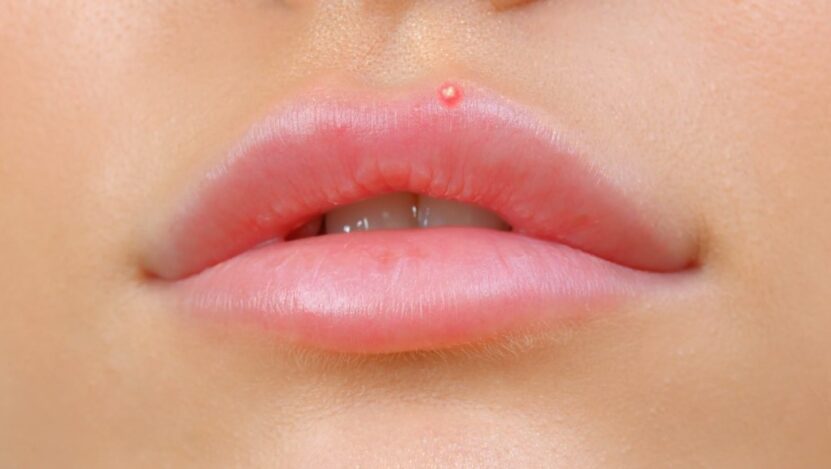
Pimples on the upper lip can be particularly annoying as they may interfere with everyday activities such as eating and speaking. Treatment is similar to general acne care, but you might want to avoid waxing the area while the pimple heals to prevent irritation and further breakout.
Inside and Around the Lips
Pimples inside the lip are usually a different type of oral issue, like a mucous cyst or canker sore. However, if it’s a pimple on the waterline or edge of your lip, you should approach its care with extra gentleness.
- Avoid Popping: This region is more vulnerable to infection. Popping a pimple here can potentially lead to a more severe infection.
- Medicated Lip Balms: Use medicated lip balms containing salicylic acid or benzoyl peroxide. Make sure to apply it only on the pimple and not on the rest of the lip to avoid drying them out.
Home Remedies
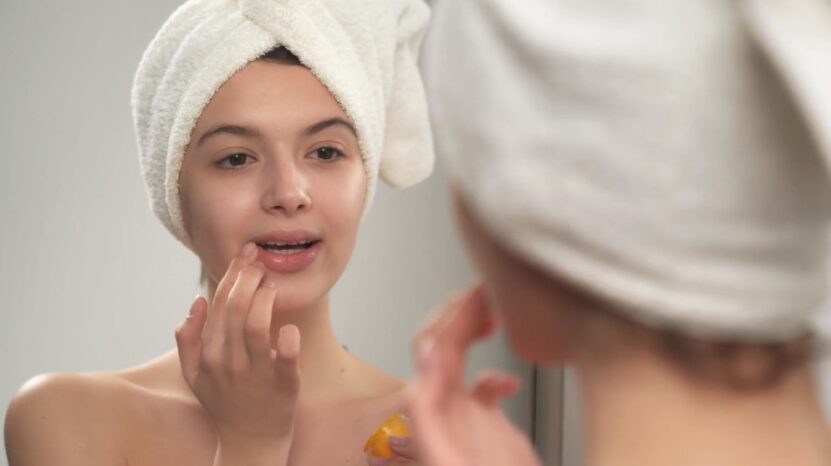
Apart from the clinical treatments, there are a few home remedies you can consider:
- Honey: Thanks to its antibacterial properties, honey can help in reducing inflammation and healing the skin.
- Green Tea: Rinse your lips with cool green tea. The antioxidants in green tea can help reduce inflammation and promote healing.
- Apple Cider Vinegar: Dilute apple cider vinegar with water and dab it onto the pimple with a cotton swab. Its antimicrobial properties can help fight acne-causing bacteria.
However, keep in mind that home remedies aren’t universally effective and might not work for severe acne conditions.
Closing Thoughts
Lip pimples can be an uncomfortable and often embarrassing problem, but rest assured, with patience and the right care, they can be managed successfully. Keep your skin clean, eat a balanced diet, stay hydrated, and, most importantly, try to maintain a positive mindset. After all, beauty is more than just skin deep. If your lip pimples persist, remember to reach out to a dermatologist or healthcare professional for further assistance.

